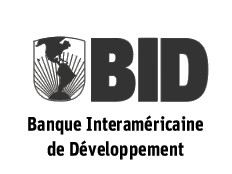The Inter-American Development Bank (IDB) disbursed a record $176 million in grants to Haiti in 2010. In addition to this record amount, the IDB in the coming weeks will disburse a $15 million emergency grant to help Haiti fight cholera, which was approved on Dec. 15 by the IDB's Board of Executive Directors. The Bank's anti-cholera operation is coupled with a $5 million donation from Spain for a total grant of $20 million.
The IDB also provided non-reimbursable technical cooperation grants for $6.5 million, including $1.5 million for improving child survival and for social safety nets programs. Haiti obtained a further $17 million in disbursements from the Canadian government, the EU and OPEC through IDB-run projects. All together, IDB grants, technical cooperation grants and third-party disbursements add up to $ 199.5 million for Haiti through a variety of IDB mechanisms.
IDB has pledged to provide $200 million in grants annually to Haiti through 2020, plus an additional one-time allotment from the Fund for Special Operations of $137 million. This brings the total support to the country through 2020 to over $2.3 billion for the country's reconstruction and development. Prior to the earthquake, in 2009 Haiti received approvals for $122 million.
Moreno recognized the immense challenge of rebuilding Haiti and urged donors to continue providing assistance to the poorest country in the hemisphere. "We must avoid donor fatigue," Moreno said. "Five years ago it was almost inconceivable that we would be able to disburse $50 million a year. We're now hoping to reach $200 million. That is a major challenge, because the Haitian government's absorption capacity hasn't quadrupled. If anything, it was diminished by the earthquake. The Bank is working to strengthen the country's institutional capacity."
"Building up Haiti's institutions is hard work that provides few photo opportunities," said Moreno. "But it is the only way to ensure that in the long haul Haiti will break its dependence on foreign aid."
The IDB has also redirected funds for reconstruction work. President Moreno said this is essential to build a foundation for Haiti to embark on a self-sustained growth path in the future, thus diminishing its dependence on non-governmental organizations and other international institutions. For instance, the IDB has helped strengthen DINEPA, the local water authority, which will be able to purchase more chlorine, water purification tablets and soap thanks to the Dec. 15 anti-cholera grant.
Building permanent schools can take almost one year, and Haiti wants to build more than 2,500 new schools under its education reform plan supported by the IDB. In November the Bank made its first $50 million grant for that plan, out of a commitment to provide $250 million for this sector over five years.
"We must help Haiti generate more jobs," said Moreno. "We are strengthening the financial system to unlock credit for businesses. We are building capacity at industrial parks to attract more manufacturers. We are helping the Haitian government improve the business climate for trade and local and foreign investors. All this is needed to change the long-term prospects for Haiti."
The 2010 disbursements breakdown / Sector / 2010 Disbursements :
Agriculture / 8,651,280
Basic Infrastructure / 8,054,651
Budget Support / 50,000,000
Education / 19,566,281
Energy / 2,633,129
Health / 1,126,732
Institutional Capacity / 1,308,892
Natural Disasters / 1,936,937
Transport / 63,469,721
Urban Rehabilitation / 6,512,908
Water & Sanitation / 12,853,130
Total / 176,113,661
HL/ HaitiLibre

No comments:
Post a Comment